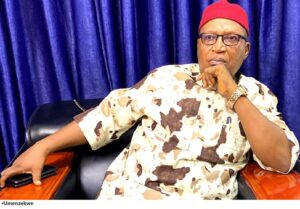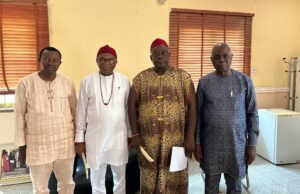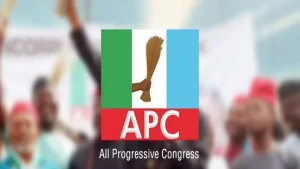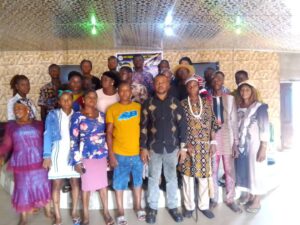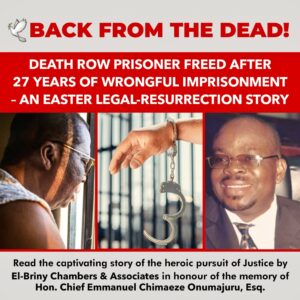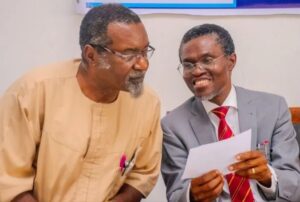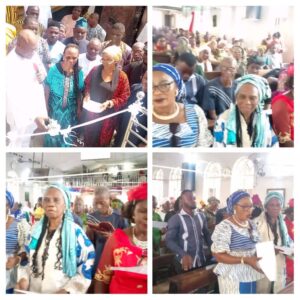Visioning For A Geopolitical Space (Part 1) By Paul Nwosu
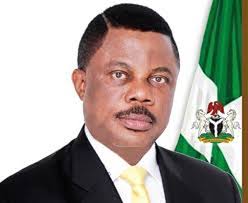
Gov. Willie Obiano
Public scepticism is usually one of the problems with visioning for a geopolitical space such as a country, region, state, etc. The public which the political class is visioning for are often cynical and deeply suspicious that such visioning or long term development planning might come to naught or at best, further buoy the interest of the ruling class.
And who would blame them for having such mind-sets. Similar projects from the past, up to the recent Vision 2020, validate this attitude. And this is attributable to the fact that most of the previous committees on vision-this-and-that or what we routinely refer to as long term development plans, from the colonial era to the latest one like Vision 2020, have been made up of an assemblage of elites and high profile technocrats, some of whom have lost touch with the realities around them to be able to make pragmatic projections for the future.
At other times, you find that these committees, for purpose of exigency, are simply made up of politicians with hardly any altruistic disposition and government apologists who see such schemes as manures of sort to nourish their perpetuation in the system.
This is more so, where they hardly take into consideration other functional interest groups, representing wider and active segments of the public whose buy-in could give their output a holistic and broad based policy outlook. These, coupled with existing seething distrust, occasioned by serial misrules of consecutive political leaderships immediately provide a perfect momentum for public scepticism to swirl anytime a visioning committee is broached.
This is why I commend Professor Charles Chukwuma Soludo for the approach he adopted in his inaugural outing with the Committee on Vision 2070, constituted by Governor Willie Obiano to realistically invent what Anambra State will look like in the next 50 years.
After the initial brain storming session with core members of the Committee, Professor Soludo reached outside of the Committee to meet with traditional rulers, religious leaders, president generals, civil servants, traders associations, professional bodies and so on.
He made it clear that he is ready to co-opt new members and accept well-meaning contributions from the public. This is a step in the right direction and an indication that this may not go the way of other ‘Visions’ we have witnessed in our county’s history. In my reckoning, this may well turn out to be the veritable template for visioning and economic cum social development planning in the country.
The only fear I have is whether subsequent political leaderships will have the political will and discipline to pursue the visioning to fruition. But there is no reason why it shouldn’t be followed through if the diverse interest groups and the medley of hard-core professionals who make up the Committee agree that it is only through the consistent pursuit of the vision agenda can Anambra State become the “… new prosperous corridor – a prosperous homeland for the globalizing tribe”, which Professor Soludo talked about in 2017.
This consensus should be such that would confer a certain degree of immunity on the Committee from being dissolved by any political party that may come to power in future.
The greatest threat to planning in this country is lack of political stability which naturally truncates the planning process. It has almost become the tradition for a new political dispensation to rubbish, with a casual stroke of red pen, the good work a previous administration has done.
So far as the incoming chaps are not the architect of the project, it is immediately repudiated or abandoned not minding the amount of public resources that has been committed to it. Methinks, it would therefore make sense if the present government could build a legal firewall to gird and secure the Vision 2070 project from either being written off or deliberately stunted by a euphoric incoming administration.
Although this may be difficult to contain, it will however serve as an amber signal to political rascals as to the sanctity of the Committee and its important role as an advisory to emergent governments on the progress Anambra State is expected to make at a particular time.
Politicians like to reward their stakeholders and supporters with political appointments and entitlements. It wouldn’t be out of place for successive administrations in Government House, Agu Awka to want to patronize their cronies with slots in the Committee. This is perfectly in order, but the incoming members must meet the standard that would have been set by this pioneer Committee which would also serve as a yard stick in admitting future members into the Committee.
This is important in order to ensure that the rich cross- pollination of ideas is not compromised along the line, bearing in mind that this is a visioning project that spans half a century.
Professional cynics are already on the prowl waiting to see how the Committee will falter so that they would say: “but we told you.” However, the very first outing of the Committee bespeaks a great deal of sure footedness that shows they know exactly where they are headed. If only they will go about the exercise with the kind of discipline that the corporate world brings to bear on visioning, then Anambra state will stand to reap the benefits of their work in far less than 50 years.
Visioning in a corporate environment is less complex and straight forward because of the small size and narrower interests to be accommodated, compared to a country, region or state, even though the same principles may apply. Visioning for a corporate setup basically has to do with articulating the long term objectives or goals of the organisation.
However, visioning in a corporate set up is not done in isolation. Also to be spelt out in practical and realistic terms is how the organization intends to realise the vision or laid out corporate objectives. So, it is not enough to aim for planet Pluto in 10 years, for example.
That would amount to a mere fantasy. How you intend to get there is perhaps more important than the vision itself. And to arrive at the ‘How’, there are a number of critical questions that the owner(s) of the business and their management must provide answers to.
It is after these might have been done that both the long term objectives and the how-to-achieve them are encapsulated in two different terse statements popularly known as the ‘Vision Statement’ and the ‘Mission State’ often proudly displayed at prominent spaces of most companies’ receptions, entrance gates or courtyards.
For some big corporations, it is still not just enough to have vision and mission statements. A set of distinct corporate culture, values and peculiar ethical discipline must be in place to successful drive the ‘mission’ in order to ultimately realise the ‘vision’s or the long term objectives. This strategic trinity of vision plus mission plus corporate culture have become the corporate creed and holy book if you will, by which big corporations and companies successfully run their businesses on daily basis. And of course, their growth, turnover and diverse interest beyond their cradle speaks volume to the efficacy of this internal strategic trinity.
Let’s now relate this to a geopolitical space like Anambra State.
Just like the corporate organization, visioning for a state has to do with articulating the long term objectives and goals for the area in question. While visioning for a corporate organization is focused on the products or services and the amount of progress they wish to make over a specific period of time, visioning for a state or country takes into consideration the natural resources and physical endowments, socio-cultural nuances, vocational biases (peculiar skills) of the people and unique opportunities, as well as what they want to make of these attributes within a specific period of time. And since we are living in a world that is essentially driven by hi-tech, these discernible features must necessarily be synthesized with modern technology in order to maximize the envisioned repositioning.
Governor Willie Obiano has already cast a strong foundation that can be further developed along those lines to facilitate the visioning effort of Professor Soludo’s committee for Anambra State. At the inception of Obiano’s administration, he came up with an economic blueprint that identified what he calls the six pillars of development which include agriculture, trade and commerce, industrialization, oil and gas, creative economy and logistics. To galvanize these six sectors where Anambra State has comparative edge into result oriented economic machines, he underscored fourteen ‘enablers’ that must be put in great working conditions and they include security, education, health care, finance, transport, environment, civil and social infrastructure, power generation, judiciary, housing and urban development, hospitality and tourism, water and sanitation, youths and sports, and ICT.
Obiano also realised that in order to actuate and sustain these cocktail of variables, a great deal of discipline and ethical attitude is required. So his administration put together what is popularly known as the Anambra State Ten Shared Values, a set of ‘credo’ that should guide the conduct and behaviour of Anambra person in the pursuit of his/her daily work or business, at school and relationship with other people. But given the tenured nature of our constitutional democracy, the full benefits of this template cannot be fully realized in one or two terms of elective office. This also explains why a far-flung visioning exercise, such as Vision 2070 has become imperative.
It is pertinent to note though that most of the countries or states (within countries)that made the kind of radical progress Anambra State is looking to realize didn’t have the luxury of sitting in a conference room to collectively deliberate on a strategic vision for their countries.
Watch out for Part 2 immediately!
Sir Paul Nwosu wrote from Atani, Ogbaru LGA, Anambra State


